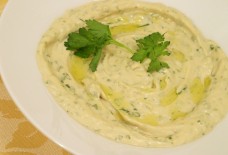Damascus Revels in Its New Allure to Investors
From the corridors of Syria’s stately central bank to the capital’s winding, barrel-vaulted souk in the heart of the Old City, it is hard to remember that 18 months ago Syria was a diplomatic and economic pariah state.
Growth is expected to come in this year at a respectable 3%, despite a big knock from the global financial crisis. European tourists spill out of recently renovated boutique hotels in the capital’s Old City. American accents boom across the dining room of the Four Seasons. In the tony Maliki neighborhood nearby, tourists, foreign businessmen and fashionably dressed Damascenes sip $4 lattes at one of several bustling cafes.
Central-bank chief Adib Mayaleh is practically giddy about Syria’s new allure to foreign investors. Amid warming ties between the West and Syria, executives from two French banks recently dropped by his office to talk about opening branches here. The same French bankers “previously said they would have nothing to do with me,” he says, gloating.
“We see more and more banks coming here to investigate the market,” Mr. Mayaleh says. “Syria is virgin territory to explore.”
In fact, Syria’s still-isolated economy protected it from the worst of the global financial crisis. Banks here haven’t been hit by defaults. Tourism receipts dipped but are recovering again. A recent private-sector-led investment boom in real estate shows no signs of the bust felt in other regional markets like Dubai.
Earlier this year, real-estate adviser Cushman & Wakefield listed Damascus office space as the eighth most expensive in the world. That is behind Paris and two spots ahead of midtown Manhattan.
“The only Syrians that can buy houses are those that can sell one first,” says real-estate agent Ayman al-Saman, from his closet-size agency in the center of town. Residential real-estate prices have tripled since 2004, he says.
On top of all that, the West’s recent embrace of Syrian President Bashar Assad is translating into a booster shot of economic optimism.
Bassel Hamwi, deputy chairman of Bank Audi Syria, one of the largest private banks in the country, said the barrage of U.S. sanctions the Bush administration slapped on Syria starting in 2004 never was a real barrier to economic growth. But warming ties with the world’s largest economy can’t help but make a difference. “Syria used to be a ‘frontier’ market,” the Texas- and Harvard-educated banker says. “As of 2009, I personally consider this an emerging market.”
It has been a long road, with plenty of obstacles still ahead. When Mr. Assad took over here after his father’s death in 2000, he kept tight control of the state, suppressing dissent. But he also ushered in economic overhauls. Lower import tariffs allowed foreign goods from China and Europe to flow in. In 2003, banking reform opened the door to a handful of private lenders. The overhauls brought with them galloping inflation, but everyday Syrians embraced the new consumer culture.
President Bashar Assad meets with French President Nicolas Sarkozy in Paris on Friday.
Sarkozy, Assad
Sarkozy, Assad
“We have lots of industry in Syria that produces everything we need, but people prefer things from abroad,” says 27-year-old shopkeeper Manhal Moujarid, in a packed appliance store full of Chinese-made heaters, tucked into the mountainside souk of Damascus’s poorer Muhajireen neighborhood.
Shortly after the U.S.-led invasion in Iraq, Washington accused Mr. Assad of allowing fighters across the border to battle Americans, and in 2004 imposed sanctions. In 2005, the U.S. held Syria accountable for the assassination of former Lebanese Prime Minister Rafik Hariri and pulled its ambassador. (Syria denies both allegations.)
The sanctions didn’t directly affect much business here since American companies weren’t that active anyway. But U.S. Treasury officials suggested European firms risked being frozen out of the U.S. banking system if they didn’t play ball.
“Foreign banks were intimidated by the American sanctions,” says Mr. Mayaleh, the central banker.
Then, in what could be one of the most significant diplomatic rehabilitation acts in recent memory, Mr. Assad turned the tables. Last year, he agreed to indirect peace talks with Israel. He also helped to broker a deal between warring Lebanese politicians. Earlier this year, U.S. commanders traveled to Damascus to discuss Syria-Iraqi border security cooperation.
French President Nicolas Sarkozy invited Mr. Assad to Paris in the summer of 2008 and flew to Damascus later that year. Mr. Assad traveled to France again on Friday.
President Barack Obama made outreach to Syria a plank of his campaign. This summer, he promised to reinstate an ambassador and ease some economic restrictions. Washington has stopped short of offering to lift sanctions outright. And there has been little recent movement on naming an ambassador, triggering grumbling among Syrian officials.
Still, the thaw has boosted confidence here, as shown by the sudden rush of Western bankers calling on Syrian officials. In an interview in his marble and wood office, Abdullah Dardari, Syria’s deputy prime minister for economic affairs, gestures to two business cards left on his coffee table by executives representing big U.S. financial firms.
“Finally,” he says, “we put Syria on the map for foreign investors.”
Chip Cummins
Wall Street Journal



